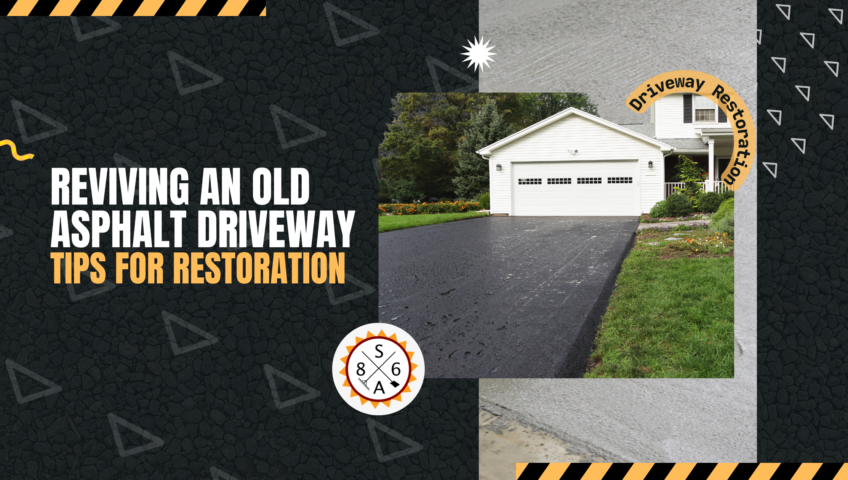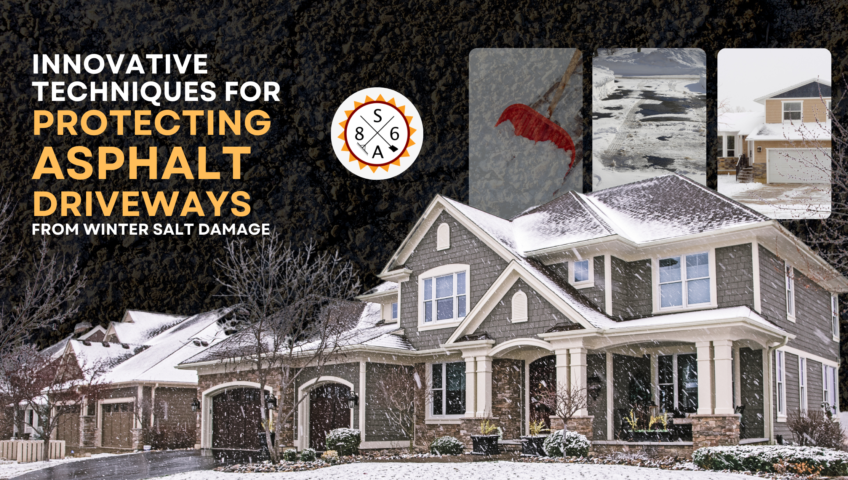
Spring Forward: Essential Asphalt Maintenance for Business Owners
Springtime brings a fresh start, not just for nature but also for businesses, especially those with commercial properties. As the snow melts and the days grow longer, business owners turn their attention to the maintenance and upkeep of their commercial spaces, particularly the asphalt surfaces that play a crucial role in the functionality and aesthetics of their properties. Whether it’s a parking lot, driveway, or walkway, maintaining these surfaces is essential for safety, customer satisfaction, and the longevity of the property. This is where the expertise of asphalt contractors and asphalt companies becomes invaluable.
Introduction: The Significance of Spring Maintenance for Commercial Asphalt
Asphalt maintenance in spring is critical for several reasons. The winter months can be harsh on asphalt surfaces, with the freeze-thaw cycle, snow removal, and the use of de-icing chemicals potentially causing damage. Cracks, potholes, and other surface irregularities can emerge, creating safety hazards and diminishing the appearance of your commercial property. Addressing these issues promptly as part of your spring maintenance routine is where asphalt contractors come into play. These professionals have the experience, equipment, and materials necessary to assess, repair, and protect your asphalt surfaces effectively.
Asphalt companies offer a range of services tailored to the needs of business owners. The first step in spring maintenance is a thorough inspection of the asphalt surfaces. This inspection identifies any damage that occurred during the winter months, including cracks that can allow water infiltration, leading to further deterioration. Asphalt contractors can then perform necessary repairs, such as crack filling, pothole patching, and sealcoating. Sealcoating, in particular, is an essential preventive measure that provides a protective layer against water penetration, UV rays, and chemical spills, extending the life of your asphalt surfaces.
Why Spring Maintenance is Critical for Your Asphalt Surfaces
Beyond repairs, asphalt contractors can also advise on long-term maintenance strategies to ensure the durability and longevity of your asphalt surfaces. This might include recommendations on proper drainage to prevent water accumulation, the use of eco-friendly de-icing agents to minimize chemical damage, and scheduling regular maintenance checks to address minor issues before they become major problems.
Choosing the right asphalt company is crucial for business owners. It’s important to select a contractor with a solid reputation, extensive experience in commercial projects, and a commitment to quality. Look for companies that offer comprehensive services, from inspection and repair to preventative maintenance and advice. Additionally, consider their responsiveness and willingness to understand your specific needs and challenges, as these qualities are indicative of a reliable service provider.
Aligning Asphalt Maintenance with Sustainability and Business Goals
Incorporating asphalt maintenance into your spring routine not only enhances the safety and appearance of your commercial property but also contributes to its value. Well-maintained asphalt surfaces are more inviting to customers, improve the overall image of your business, and can prevent costly repairs down the line. It’s an investment in your property’s infrastructure that pays dividends in safety, aesthetics, and longevity.
Moreover, working with asphalt contractors and companies aligns with broader business goals of sustainability and responsibility. Many asphalt companies now use recycled materials and eco-friendly practices in their operations, reflecting a commitment to environmental stewardship. By choosing such providers, business owners can contribute to sustainability efforts while ensuring the durability and performance of their asphalt surfaces.
In conclusion, spring maintenance of commercial asphalt projects is a critical task that requires the expertise of professional asphalt contractors and companies. Their specialized services not only address the wear and tear of winter but also prepare your property for the year ahead. By investing in quality asphalt maintenance, business owners can enhance safety, preserve the appearance and integrity of their property, and ensure a positive impression on customers and visitors. As we welcome the renewal season of spring, let’s also embrace the opportunity to renew and protect our commercial spaces with the help of skilled asphalt professionals.
Springtime brings a fresh start, not just for nature but also for businesses, especially those with commercial properties. As the snow melts and the days grow longer, business owners turn their attention to the maintenance and upkeep of their commercial spaces, particularly the asphalt surfaces that play a crucial role in the functionality and aesthetics of their properties. Whether it’s a parking lot, driveway, or walkway, maintaining these surfaces is essential for safety, customer satisfaction, and the longevity of the property. This is where the expertise of asphalt contractors and asphalt companies becomes invaluable.
Introduction: The Significance of Spring Maintenance for Commercial Asphalt
Asphalt maintenance in spring is critical for several reasons. The winter months can be harsh on asphalt surfaces, with the freeze-thaw cycle, snow removal, and the use of de-icing chemicals potentially causing damage. Cracks, potholes, and other surface irregularities can emerge, creating safety hazards and diminishing the appearance of your commercial property. Addressing these issues promptly as part of your spring maintenance routine is where asphalt contractors come into play. These professionals have the experience, equipment, and materials necessary to assess, repair, and protect your asphalt surfaces effectively.
Asphalt companies offer a range of services tailored to the needs of business owners. The first step in spring maintenance is a thorough inspection of the asphalt surfaces. This inspection identifies any damage that occurred during the winter months, including cracks that can allow water infiltration, leading to further deterioration. Asphalt contractors can then perform necessary repairs, such as crack filling, pothole patching, and sealcoating. Sealcoating, in particular, is an essential preventive measure that provides a protective layer against water penetration, UV rays, and chemical spills, extending the life of your asphalt surfaces.
Why Spring Maintenance is Critical for Your Asphalt Surfaces
Beyond repairs, asphalt contractors can also advise on long-term maintenance strategies to ensure the durability and longevity of your asphalt surfaces. This might include recommendations on proper drainage to prevent water accumulation, the use of eco-friendly de-icing agents to minimize chemical damage, and scheduling regular maintenance checks to address minor issues before they become major problems.
Choosing the right asphalt company is crucial for business owners. It’s important to select a contractor with a solid reputation, extensive experience in commercial projects, and a commitment to quality. Look for companies that offer comprehensive services, from inspection and repair to preventative maintenance and advice. Additionally, consider their responsiveness and willingness to understand your specific needs and challenges, as these qualities are indicative of a reliable service provider.
Aligning Asphalt Maintenance with Sustainability and Business Goals
Incorporating asphalt maintenance into your spring routine not only enhances the safety and appearance of your commercial property but also contributes to its value. Well-maintained asphalt surfaces are more inviting to customers, improve the overall image of your business, and can prevent costly repairs down the line. It’s an investment in your property’s infrastructure that pays dividends in safety, aesthetics, and longevity.
Moreover, working with asphalt contractors and companies aligns with broader business goals of sustainability and responsibility. Many asphalt companies now use recycled materials and eco-friendly practices in their operations, reflecting a commitment to environmental stewardship. By choosing such providers, business owners can contribute to sustainability efforts while ensuring the durability and performance of their asphalt surfaces.
In conclusion, spring maintenance of commercial asphalt projects is a critical task that requires the expertise of professional asphalt contractors and companies. Their specialized services not only address the wear and tear of winter but also prepare your property for the year ahead. By investing in quality asphalt maintenance, business owners can enhance safety, preserve the appearance and integrity of their property, and ensure a positive impression on customers and visitors. As we welcome the renewal season of spring, let’s also embrace the opportunity to renew and protect our commercial spaces with the help of skilled asphalt professionals.



